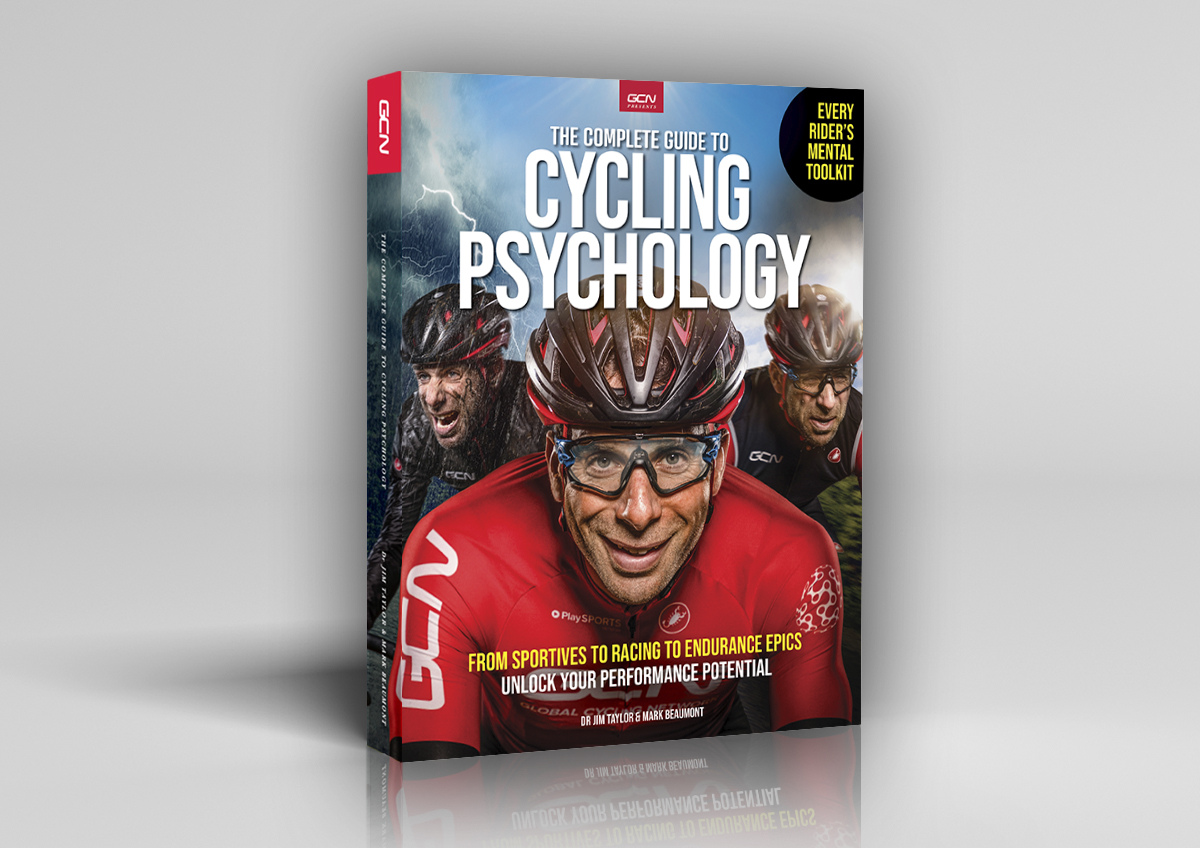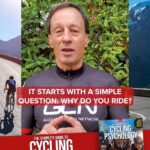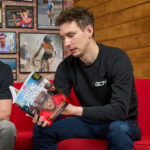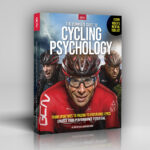PEZ Bookshelf: “The Complete Guide To Cycling Psychology”
The idea that thinking affects performance is nothing new, or, in the words attributed to Henry Ford: “If you think you can, or think you can’t, you’re probably right.” It has been demonstrated time and again that athletes with the ability to focus on their sport, to deal with setbacks with a positive mindset, to quell doubts and shut out distractions, have valuable assets that add to their physical abilities. A new book from GCN takes this idea and presents it in a new and challenging way.

“The Complete Guide to Cycling Psychology.” is subtitled “Every Rider’s Mental Toolkit” and on its cover shouts: “From Sportives to Racing to Endurance Epics Unlock Your Performance Potential.” Big goals, perhaps, but looking at the background of the authors we can see there is no lack of big goals achieved. Dr. Jim Taylor is one of the world’s leading sports psychologist, as well as being a multisport athlete, while Mark Beaumont, whose occupation(s) is adventurer/cyclist/broadcaster/author/documentary maker, most recently broke the record for the North Coast 500 route in Scotland, cycling 516 miles in under 29 hours. You can watch a YouTube video about that ride here:
Perhaps Mark Beaumont’s most remarkable ride was his 2017 around-the-world challenge, which he completed in 79 days. This required getting up at 3:30 each morning to start riding at 4, with four four-hour segments on the road, and so covering 240 miles per day. Besides the physical effort required, it is difficult for most of us to comprehend how someone could hear that alarm clock and have the mental discipline to get up and get riding for 16 hours every single day for more than two and a half months. “The Complete Guide” explains how this can be done, even if your ambition is more limited than a circumnavigation.

The book is set out in a point-counterpoint fashion as Dr. Taylor provides the structure of how to think about sports activity, with a structure that easily applies beyond cycling to other sports and even daily life, while the counterpoint sections as “Inside Mark’s Mind,” which illustrate with concrete examples of how Mark dealt with situations where the specific mental training was applicable. While the formal sections cover elements in a clear and logical format that is a useful guide, similar ideas appear in older books, such as “Sport Psychology for Cyclists” by Miller and Hill (1999) and “How Bad Do You Want It?” by Fitzgerald (2015), as well as in current online training, such as Wahoo SYSTM’s Mental Training Plan.

Dr. Taylor’s guidance is concise and set out in five sections—Stage I through IV and the Finish Line. The first deals with attitude and how you see yourself as a cyclist, while the second covers the “muscles” of your mind, ranging from motivation to confidence, intensity and emotional responses. The third section outlines the tools that will move you forward, including how to build a mental training program. These tools begin with goal-setting and Dr. Taylor goes on to discuss positive self-talk, mental imagery and other ways to focus on the tasks ahead.

All of these sections lead to that actual physical work involved in quality training, Stage IV. Strong cyclists pride themselves on their ability to overcome pain, although, as the wry Greg Lemond quote used here is that it never gets easier but you just get faster but, hey, faster is what we want, yes? And as good as the formal sections are—and they are not always so formal as Dr. Taylor writes in a jovial style about training is “money in the bank, baby, money in the bank!”— what really differentiates this book is the “Inside Mark’s Mind” parts.

At first one might think that you don’t have much in common with someone who has cycled around the world (twice), ridden the length of the Americas, set a solo record for cycling Africa from Cairo to Capetown, and hauled a mountain bike up to the summit of the highest volcano in the world before riding 300 kms downhill to the Pacific Ocean. But in fact he has experienced (albeit on a perhaps grander scale) the same doubts and fears, the same need to improve skills, and return to focus that we might all feel before a first century ride or time trial or weekend bike tour. Taken together, these 45 sections (along with three additional ones from GCN presenters about their own experiences) are entertaining colour added to the education parts and actually do provide a look inside of Mark’s mind.

There are numerous videos on GCN’s YouTube channel and GCN+ featuring Mark’s adventures, whether going around the world, prepping for RAAM, climbing that volcano, doing a relay ride the length of Britain, or touring distilleries in the Hebrides. In all of them he comes across as someone who has given these adventures a great deal of thought beforehand, reaching his goals through a calm demeanour and considerable organizational skills but also taking lessons from where there have been failures. Add to this the academic background of Dr. Taylor, who has authored 18 books and over 1,000 articles and currently is an adjunct faculty at the University of San Francisco, as well as having worked with professional and world-class athletes in tennis, skiing, cycling, triathlon, track and field, swimming, football, golf, baseball, fencing, and many other sports, and the result a book that meets its announced goals on the cover.

“The Complete Guide to Cycling Psychology” is another in the series of consistently beautifully-presented publications from GCN. With the cold days of winter approaching in the Northern Hemisphere and plans being set for your 2023 cycling season, it is a valuable addition to the library and will make you think more deeply about your training and the accomplishments to come.

“The Complete Guide to Cycling Psychology” by Dr. Jim Taylor and Mark Beaumont
241 pp., profusely illustrated, softbound
Global Cycling Network (GCN), London, 2022
ISBN 5-070002-042303
Available at GCN: shop.globalcyclingnetwork.com/the-complete-guide-to-cycling-psychology
Price: £16.99







